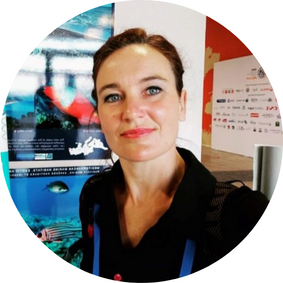Climate and energy - An interdisciplinary perspective
Join educators from 10 universities on a virtual field trip to a Swedish island to learn about climate and energy from multiple disciplinary perspectives
← Back to courses- CIVIS focus area
- Climate, environment and energy
- Open to
-
- Bachelor's
- Master's
- PhD candidates/ students
- Field of studies
-
- Art, Design and Media
- Business and Management
- Computer Science and IT
- Engineering & Technology
- Environment & Agriculture
- Law
- Medicine and Health
- Natural Sciences and Mathematics
- Social Science and humanities
- Environmental sciences, Urbanism, Geography
This course, the first CIVIS massive online open course (MOOC), is for students from any background who want to approach the climate and ecological crisis from an interdisciplinary perspective. It is both a self-standing introduction to climate and energy and a “taster” for an entirely new transdisciplinary master’s program in climate and energy which will be launched by CIVIS in 2024. In the MOOC, our academics take you on a digital tour of the Swedish island of Utö - located in the Stockholm archipelago. As you explore, you will learn about the climate of the past, the current state of the climate, global cycles (carbon, water), human impacts on climate and biodiversity, and climate change solutions from energy to policy.
Main topics addressed
- Climate of the past
- Reconstructing past climates
- Carbon cycle and climate
- Water cycle and climate
- Biodiversity and climate
- Sustainable Development Goals
- Energy sufficiency and efficiency
- Is hydrogen a solution?
- International climate law and policy
- Policy in action: Marine Protected Areas
- Counting carbon
- Behavioral Change
Learning outcomes
Participants will gain an understanding about the following:
- Climate and energy from natural sciences, social sciences and humanities perspectives
- Climate of the past and how it is studied
- State of the climate
- Human impacts on climate and biodiversity
- Climate change solutions from energy to policy
By the end of the course, you‘ll be able to...
- Describe the climate crisis and how it came to be from an interdisciplinary perspective
- Compare disciplinary approaches to acquiring knowledge about climate and energy
- Assess climate change solutions from an interdisciplinary perspective
- Demonstrate disciplinary knowledge about climate and energy beyond their own discipline
- Collaborate with specialists of other disciplines working on climate and energy
The MOOC is available for “on-demand” access at your own pace.
Requirements
This MOOC is open to anyone with an interest in the topic. There is no requirement to be a student at a CIVIS member university, or even a student at all, and there is no formal selection process. However, the course may be of particular interest for undergraduates in any discipline who want to broaden their perspective on climate and energy beyond their own field of study. It is also a “taster” for a upcoming CIVIS Master's program on climate and energy.
Registration
The MOOC is available through "on-demand" access on the FutureLearn platform. To register, click here.
Course assessment
Participants will be assessed through online quizzes.
Certification
Participants who are students or employees of a CIVIS member university will receive a certificate from CIVIS at the end of the MOOC and this certificate will be included in the CIVIS Passport. Participants outside the CIVIS community can get a certificate from the FutureLearn platform, but this may require payment.
This MOOC has been developed by 10 CIVIS member universities.
Throughout the MOOC, you will learn with the following educators.
 |
Alasdair SkeltonAlasdair Skelton is Professor of Geochemistry and Petrology at Stockholm University. He does research on and teaches about climate change from a geological perspective and about the ongoing climate crisis. |
 |
Dr Ria DunkleyDr Ria Dunkley is a Senior Lecturer in Geography, Environment & Sustainability within the School of Education & Associate Director of the Centre for Sustainable Solutions at the University of Glasgow. |
|
|
Anne CadoretAnne Cadoret is an Associate Professor in Social Geography at Aix-Marseille Université, specialised in the analysis of conflictual and concerted management processes especially on coastal zone and Marine Protected Areas. She is interested in the causes of conflicts, their mechanisms and their consequences in terms of dynamics of stakeholders, governance and social innovations in a context of socio-environmental changes. She studies the processes of place attachment, social and institutional acceptance, and effectiveness of Marine Protected Areas. |
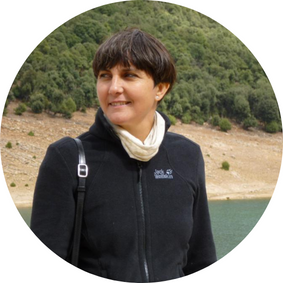 |
Laurence VidalLaurence Vidal is a University Professor at Aix Marseille Université, working at CEREGE in the CLIMATE research group. She is currently in charge of the Master STPE in Earth & Environmental Sciences and she also teaches in bachelor’s degrees in Earth and Marine Sciences. Since her PhD/post-doctorate, she has been working in the field of paleoclimatology, paleoceanography and continental paleohydrology. She is specialised in carbonate stable isotope analysis. My research work aims to better understand past climate variability through geochemical analysis of oceanic and continental environments and the improvement of the calibration of paleoclimate proxies in view of quantitative reconstructions of climate parameters from the Last Glacial Maximum to the last millennia. Currently, I am involved in an EU educational project in Climate Sciences at Master level and in two research projects: -Reconstructions of hydrological variability over the last millennia based on the study of lakes in the Moroccan Middle Atlas; -Study of the ENSO past variability inferred from individual foraminifera isotopic analysis. |
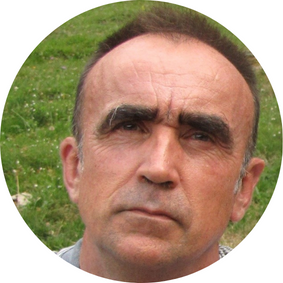 |
Juan E. MaloJuan E. Malo is an Associate Professor at the Department of Ecology and researcher of the CIBC-UAM, Universidad Autónoma de Madrid (Spain). He is deeply convinced of the potential utility of Ecology to problem solving and their research interests are focused on the effects of human activities on animal populations and ecological interactions. He studies vertebrate populations affected by large human infrastructures from several perspectives (abundance, behavior, fragmentation, interactions), and also wild ungulates and human management of rangelands (plant-herbivore-carnivore interactions, wild-domestic ungulate coexistence). He regularly teaches Environmental Impact Assessment in the Degree in Environmental Science, and he is responsible of the Master Thesis in the Ms. Ecology. |
 |
Marco PetittaMarco Petitta, PhD, is Full Professor of Hydrogeology at Sapienza Università di Roma, Italy, authoring about 90 papers on international journals. He coordinated the European Project Horizon2020 KINDRA (2015-2018). Following EU projects still ongoing are KARMA (PRIMA program, 2019-23) and NINFA (Horizon Europe, 2022-26). For the International Association of Hydrogeologists (IAH) he was Chairman of the Italian Chapter (2012-2016) and Vice-President for Western and Central Europe and he is now Vice-President for Science and Program Coordination. He served as Coordinator of the Panel of Experts in Hydrogeology of the EFG (European Federation of Geologists) and he is still Member of the EC Working Group of Groundwater, for the Common Implementation Strategy of Water Directives |
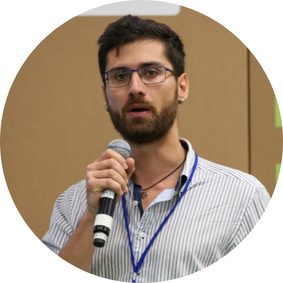 |
Dr Moreno Di MarcoDr Moreno Di Marco is a conservation biologist with a passion for addressing the challenges that global change poses to biodiversity. He is especially interested in developing quantitative techniques for addressing large-scale conservation problems, and evaluate how the solutions to these problems interact with the achievement of other societal goals (such as food production, climate change mitigation, improved human well-being). Since 2009 he has worked for Universities, NGOs, and GOs across Europe and Australia, collaborating with >350 researchers worldwide. he now leads the Biodiversity and Global Change lab (biodiversitychange.com) at University Sapienza of Rome (Italy). |
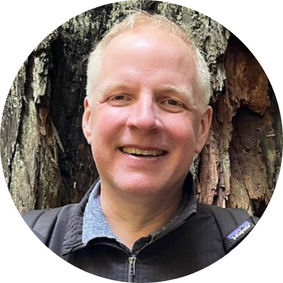 |
Todd EhlersProfessor Ehlers' research interests are in how (paleo)climate, biota, and tectonics interact to produce the topography we live on. His approach involves state-of-the-art and coupled paleoclimate, dynamic vegetation, tectonic, and surface process computer models that are tested with diverse geochemical data to understand environmental change. Since 2023, Todd Ehlers is a professor and Head of School for the Geographical and Earth Sciences at the University of Glasgow, Scotland, UK. Between 2009-2023 he was a professor and Chair of Geology at the Department of Geosciences, University of Tuebingen, Germany. Before this (from 2003-2009), Prof. Ehlers was an assistant and associate (with tenure) professor of Geosciences at the University of Michigan, USA. He graduated in 2001 with a Ph.D. in Geophysics from the University of Utah, USA, where he also completed two M.Sc. degrees (geology 1997; geophysics 1996). Professor Ehlers has received several awares for his research. From 2021-2022 hr was a Moore Distinguished Scholar at the California Institute of Technology. In 2018 he was elected as a member of the Academia Europaea and the recipient of the European Geosciences Union Bagnold Medal. In 2014,he received a European Research Council (ERC) consolidator grant, and in 2009 he was elected as a fellow in the Geological Society of America. |
 |
Donatella MagriDonatella Magri is a Palaeoecologist at Sapienza Università di Roma. She focuses on the quaternary vegetation and climate history of Europe. Her research interests include the following: a) timing and modes of Quaternary migrations, turnovers, and extinctions of tree populations, b) location and extent of refuge areas for trees during the glacial periods; c) effects of past human activity on the natural environment, with a focus on the Mediterranean regions; d) reconstruction of past climate changes from pollen records; e) combining fossil and genetic data to investigate persistence and diversification of plant populations over time. |
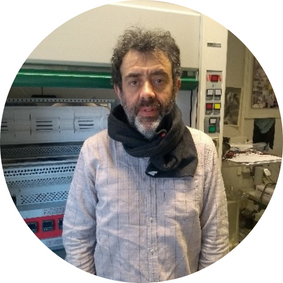 |
Jose R. AresJose R. Ares is an Associate Professor at Departamento de Física de Materiales, Universidad Autónoma de Madrid (UAM), within the group of Materials of Interest in Renewable Energies. He has a long experience in teaching physics at different undergraduate and postgraduate courses being currently the coordinator of the Master's Degree about Energy at UAM. His teaching is combined with research on energy related topics. In this context, his group aims to synthesise and characterise materials (i.e. mainly sulfides and hydrides based compounds) that are sustainable and suitable for energy conversion and storage, in particular in the field of hydrogen and thermoelectricity. He exhibits a high number of publications, seminars, courses as well as organization of energy related conferences and regularly participates in numerous outreach activities on physics and energy from elementary school to University. |

